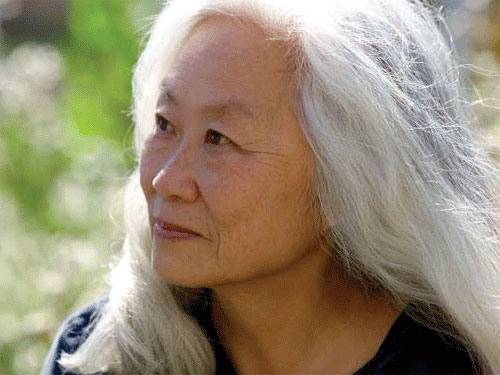I can’t believe that once again Republican politicians are discussing legitimate vs. illegitimate rape. This time the culprit is South Carolina Lindsay Graham. This time even anti-abortion GOP congresswomen rebelled.
In past posts I’ve sometimes turned to Tess of the D’Urbervilles to explain why rape and abortion are far more complex than rightwing activists claim (see below), but today my choice is Maxine Hong Kingston’s story “No Name Woman.”
To be absolutely fair, Graham didn’t actually use the phrase “illegitimate rape.” Rather, he asked anti-abortion activists to provide him with “a way out of this definitional problem with rape.” In other words, he was asking for a way to distinguish between so-called legitimate and illegitimate rape without shooting himself in the foot. At the heart of his question was his belief that (in the words of New Republic writer Brian Beutler) “women will lie about rape if that’s what it takes to get an abortion.” And of course at the heart of that belief is that he knows better than women about what they should do with their bodies.
The reason rape won’t leave the abortion conversation is because it is the grayest of the three exceptions that some (but far from all) anti-abortionists are willing to grant: “rape, incest, and the health of the mother.” So after already splitting hairs, the rightwing are splitting subhairs. What they aren’t prepared to acknowledge is that lives are immensely complicated and that women often have deep and powerful reasons for choosing to abort.
Kingston’s powerful story (or quasi family memoir) tackles the complexities although, in her protagonist’s case, the victim is not a fetus but a live baby. Kingston’s aunt, back in China, had a child through an adulterous affair and then committed suicide by jumping into the village well with the baby in her arms. This occured after the outraged village had torn apart the family’s house, trampled its crops, and destroyed its livestock. They don’t stop to ask about the specifics of the case.
Kingston can only speculate upon what these specifics are. One is that her aunt had been raped:
My aunt could not have been the lone romantic who gave up everything for sex. Women in the old China did not choose. Some man had commanded her to lie with him and be his secret evil. I wonder whether he masked himself when he joined the raid on her family.
Perhaps she had encountered him in the fields or on the mountain where the daughters-in-law collected fuel. Or perhaps he first noticed her in the marketplace. He was not a stranger because the village housed no strangers. She had to have dealings with him other than sex. Perhaps he worked an adjoining field, or he sold her the cloth for the dress she sewed and wore. His demand must have surprised, then terrified her. She obeyed him; she always did as she was told.
Another imagined scenario is that her aunt, whose husband had left years ago for America and who was living in barren circumstances, acted upon deep and forbidden longings.
Whatever the reasons, they don’t matter any more to the villagers than the reasons for an abortion matter to anti-abortion radicals. It is enough that a woman broke their rules. As a result, they are willing to unleash unholy hell upon her and her family.
Kingston writes of how the villagers punished her aunt “for acting as if she could have a private life, secret and apart from them.” Maybe that is what infuriates our own anti-abortionists: that women want to have a private life, secret and apart from them.
Previous posts on America’s abortion and reproduction debates
John Irving’s Defense of Abortion
Imagine Austen vs. War on Women
SCOTUS Traps Women in Doll’s House
GOP vs. Women=Pentheus vs. Bacchae
How the Rightwing Would Respond to Tess
Ryan, Abortion, and Hardy’s Angel Clare
Is Atwood’s Dystopia Coming True?
A 17th Century Comedy Addressing Rape
Threatened by Female Empowerment
Purity Tests Kill the Patient (Hawthorne’s The Birthmark)
